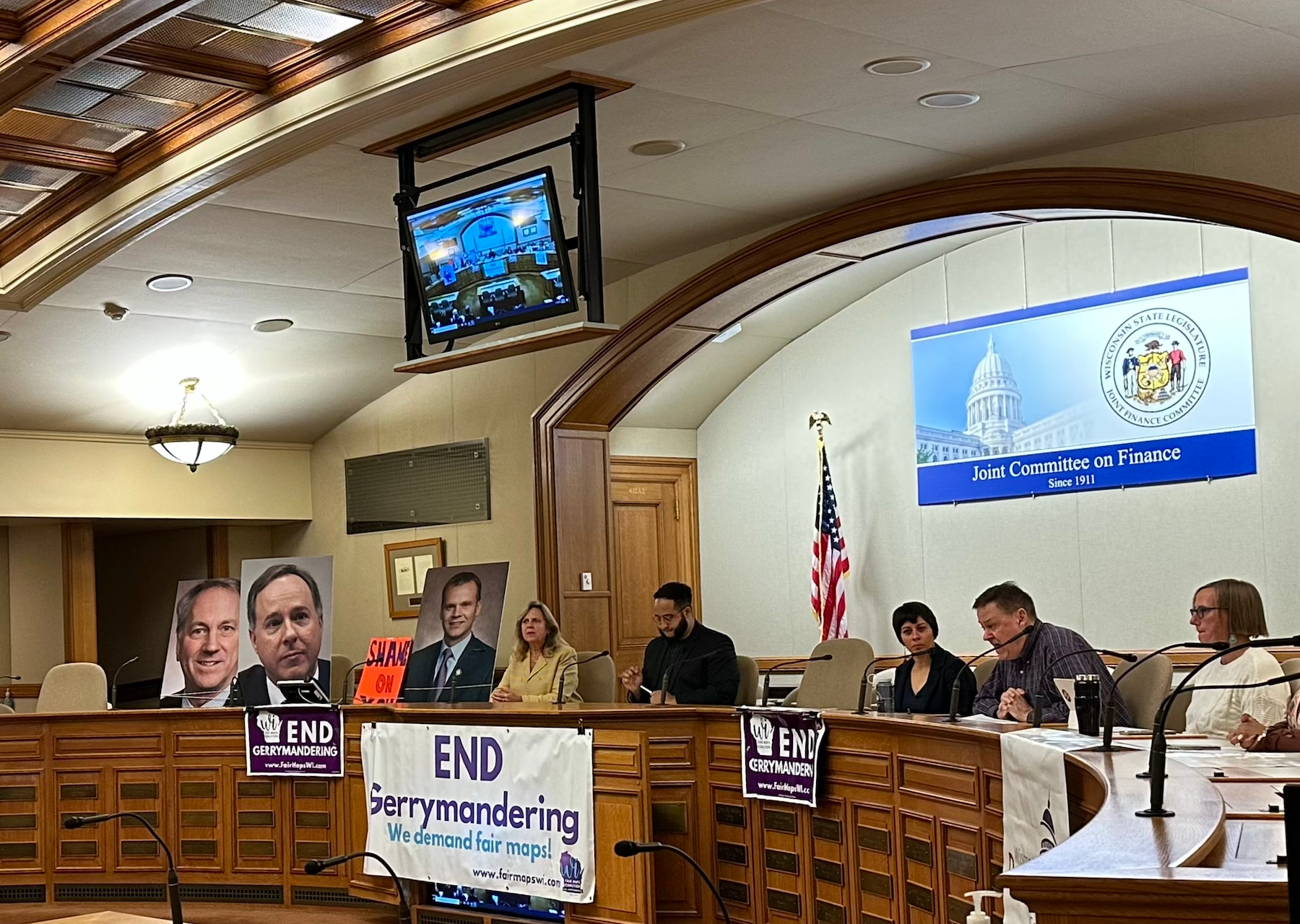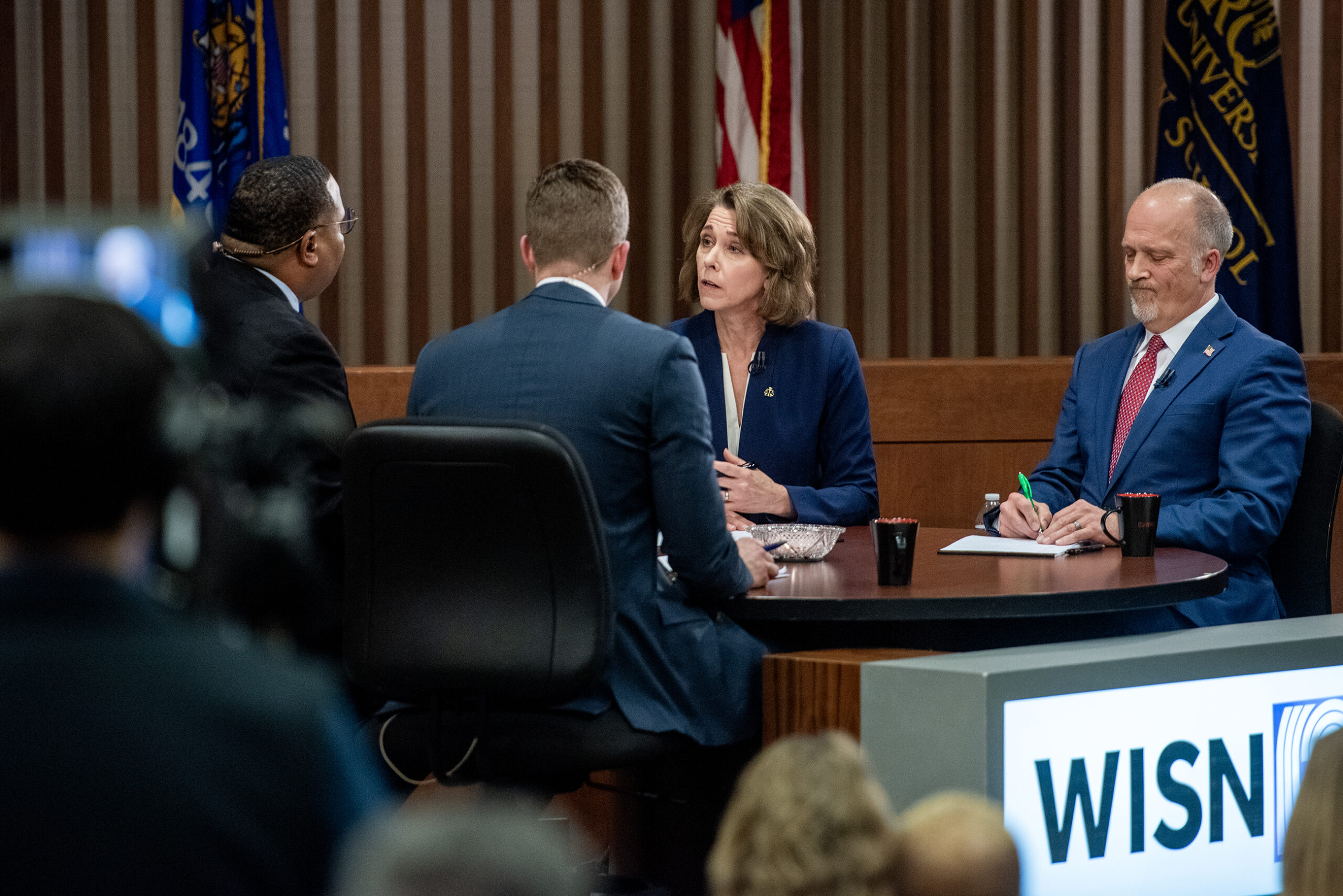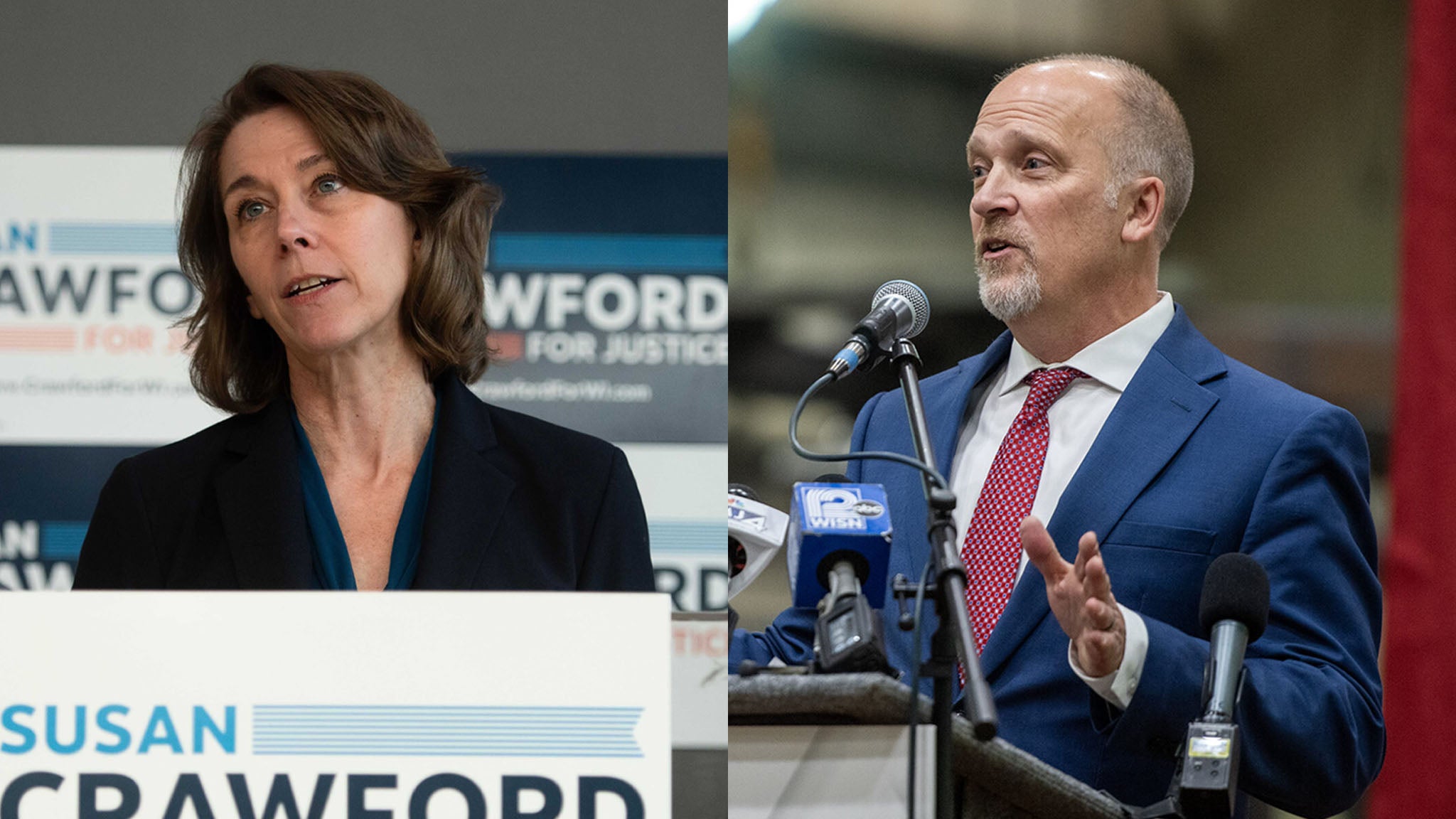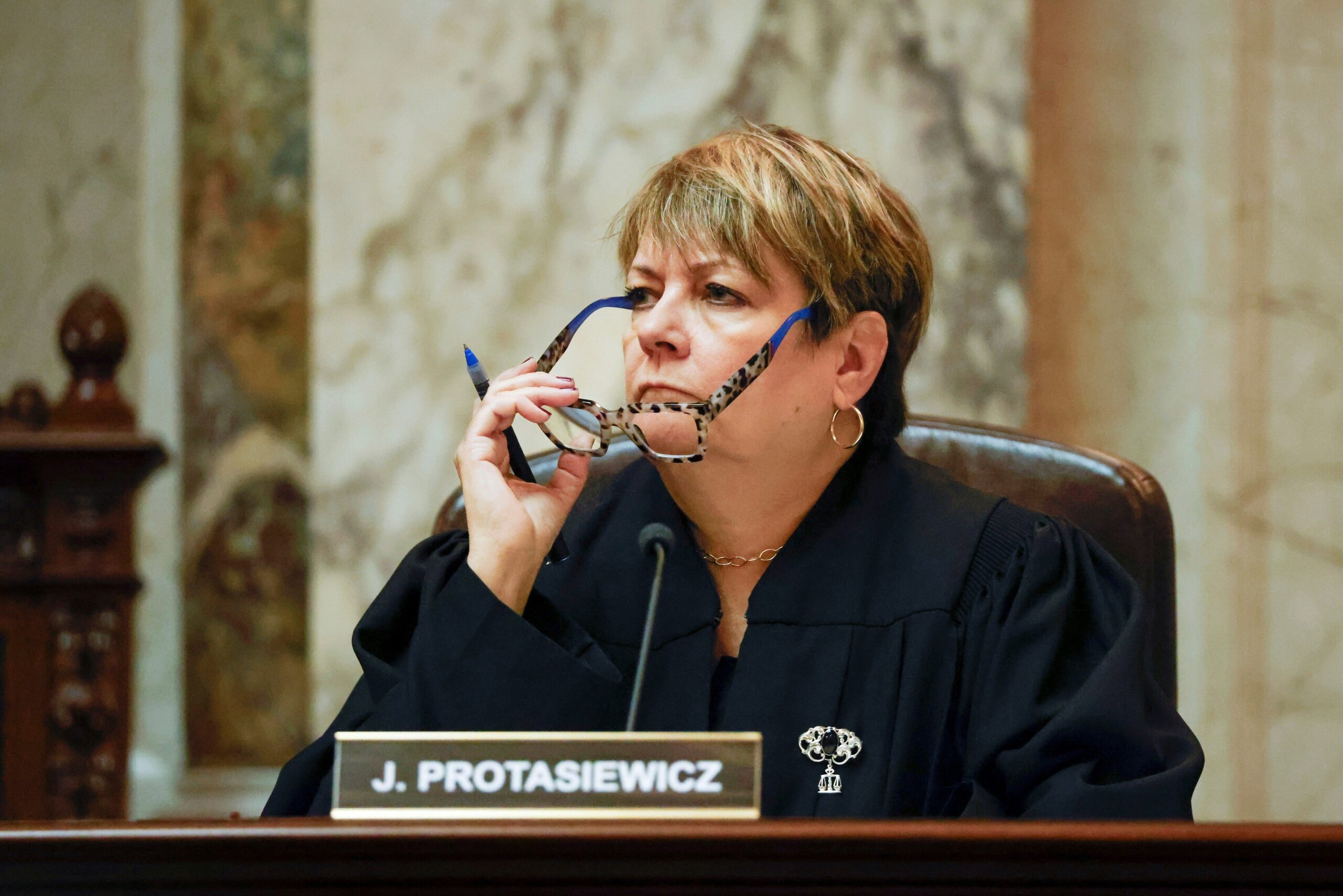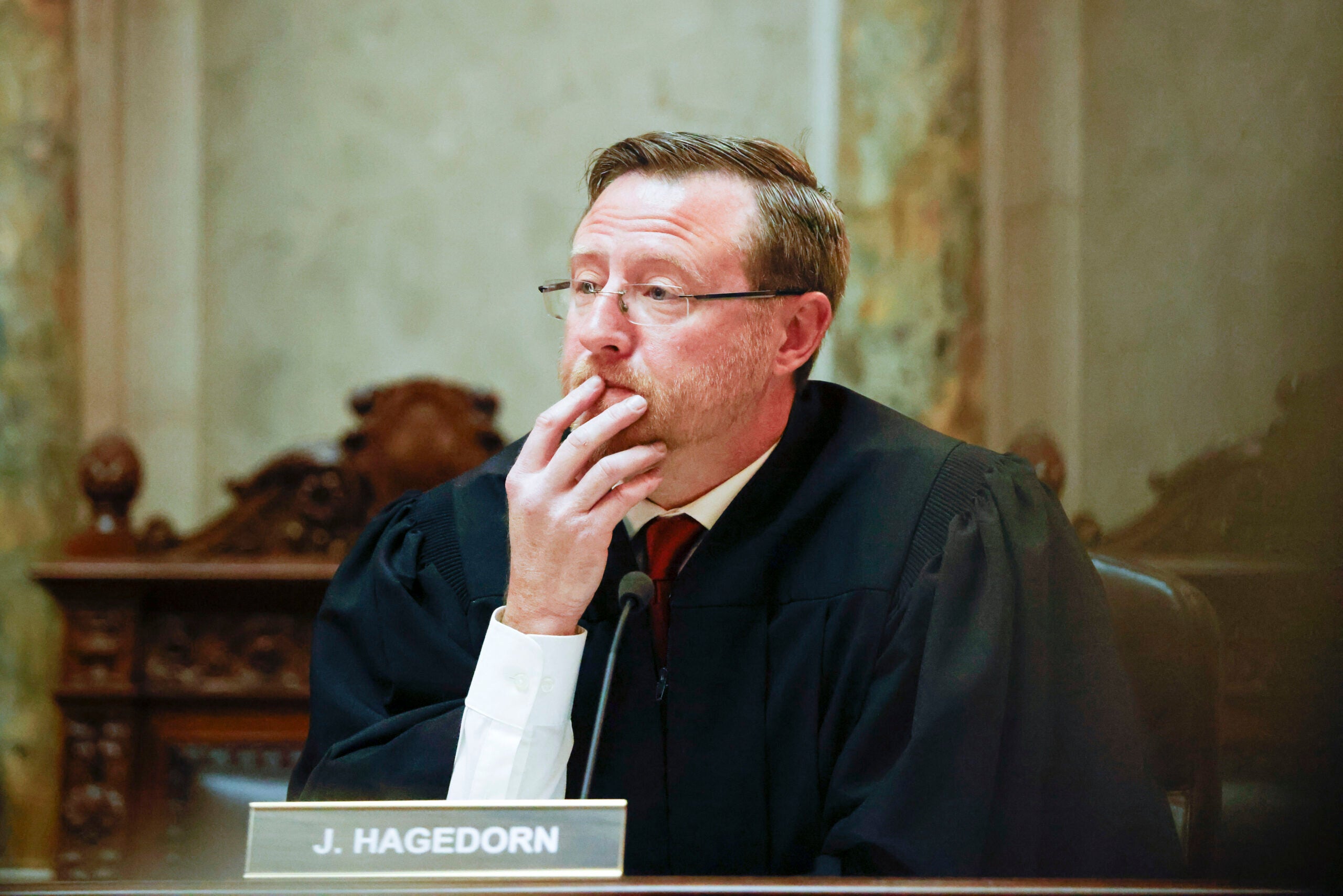Days after the Wisconsin Supreme Court voted to hear a challenge to the state’s Republican-drawn legislative maps, setting the stage for a possible restructuring of state political districts before the 2024 election, advocates on Monday spoke out against a GOP proposal to change the process for redistricting.
The press conference at the state Capitol comes amid a political fight over a lawsuit challenging Wisconsin’s current maps that the Wisconsin Supreme Court voted last week to take up. On Friday, state Supreme Court Justice Janet Protasiewicz declined to recuse herself from hearing that case. Republican leaders called for her recusal because she had previously described those maps as “rigged,” and said they would consider impeaching her if she did not.
In a 64-page order explaining her decision, Protasiewicz said that wielding recusal of a justice because they are “predicted to benefit a non-party to the case” would cause the courts to “grind to a halt.”
Stay informed on the latest news
Sign up for WPR’s email newsletter.
“Recusal decisions are controlled by the law,” she wrote. “They are not a matter of personal preference. If precedent requires it, I must recuse. But if precedent does not warrant recusal, my oath binds me to participate.”
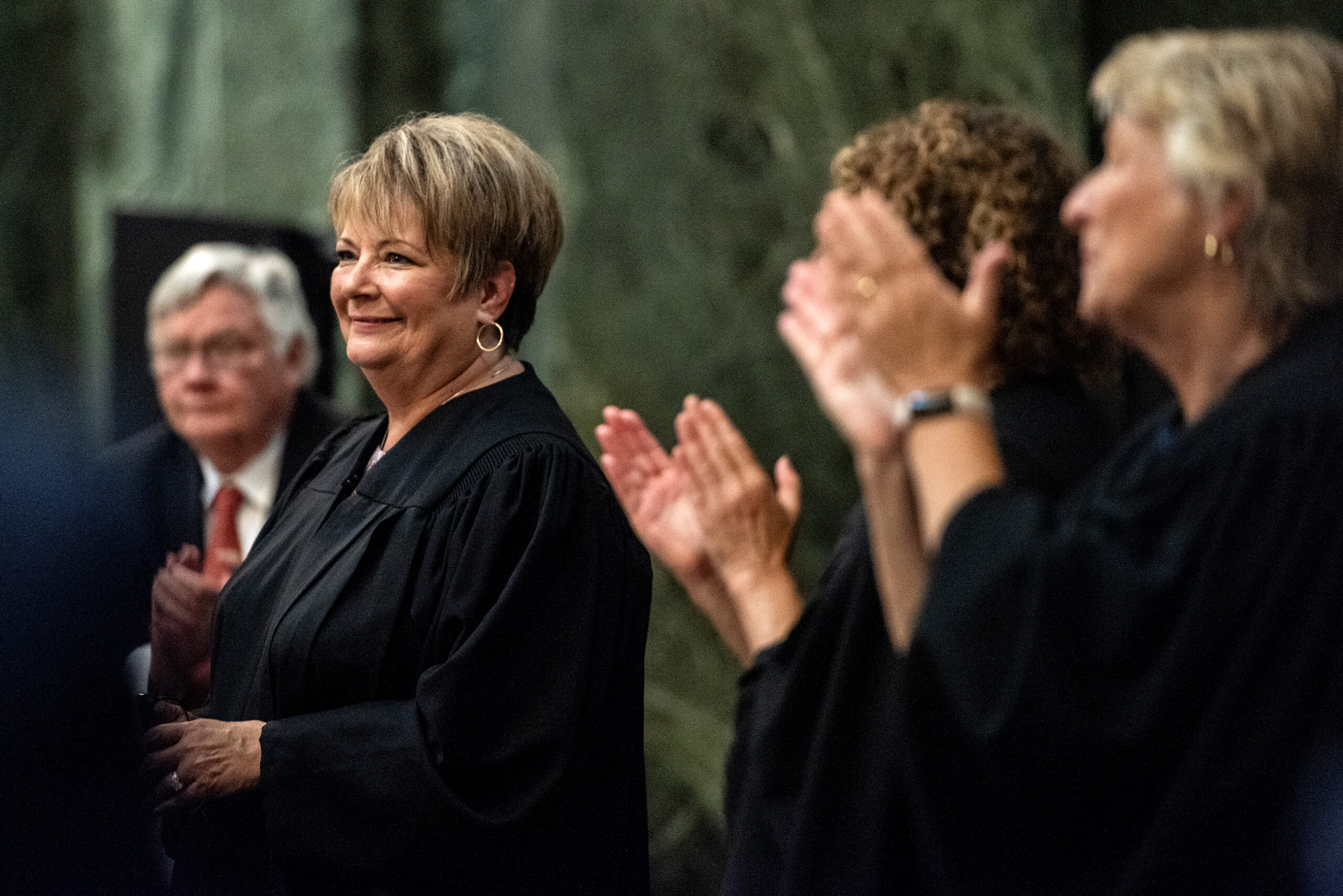
Vos says US Supreme Court ‘will have the last word’
In response, Assembly Speaker Robin Vos, R-Rochester, issued a statement Monday, saying Republicans believe federal precedent supports their argument for recusal.
“Justice Protasiewicz should have recused herself. We think the United States Supreme Court precedent compels her recusal, and the United States Supreme Court will have the last word here,” Vos said.
Last month, Vos announced that Republicans had drafted a bill to implement a new redistricting process. As written, the nonpartisan Legislative Reference Bureau would draw the maps, and the Legislature would have the opportunity to approve or reject them.
The bill’s supporters said the proposal would implement new maps before the 2024 elections, putting political fighting to bed and rendering the court challenges unnecessary.
That proposal passed the Assembly, but Gov. Tony Evers has called the bill “bogus” and is unlikely to approve it if it passes the Senate. Senate President Chris Kapenga, R-Delafield, said over the weekend it’s unclear if the bill will go before that body.
Also over the weekend, Vos published an op-ed in the Racine Journal Times, saying the court challenge places Wisconsinites in “a state of political limbo, unclear which district they live in.”
“The constant battles have also been a drain on taxpayers and a continued standstill could cost millions more,” he wrote.
Vos called for bipartisan support for the “Iowa-style redistricting proposal” before the Legislature, saying that lawmakers, not courts, should draw the state’s maps.
“The alternative — kicking the can down the road and continued instability — is untenable,” Vos wrote.
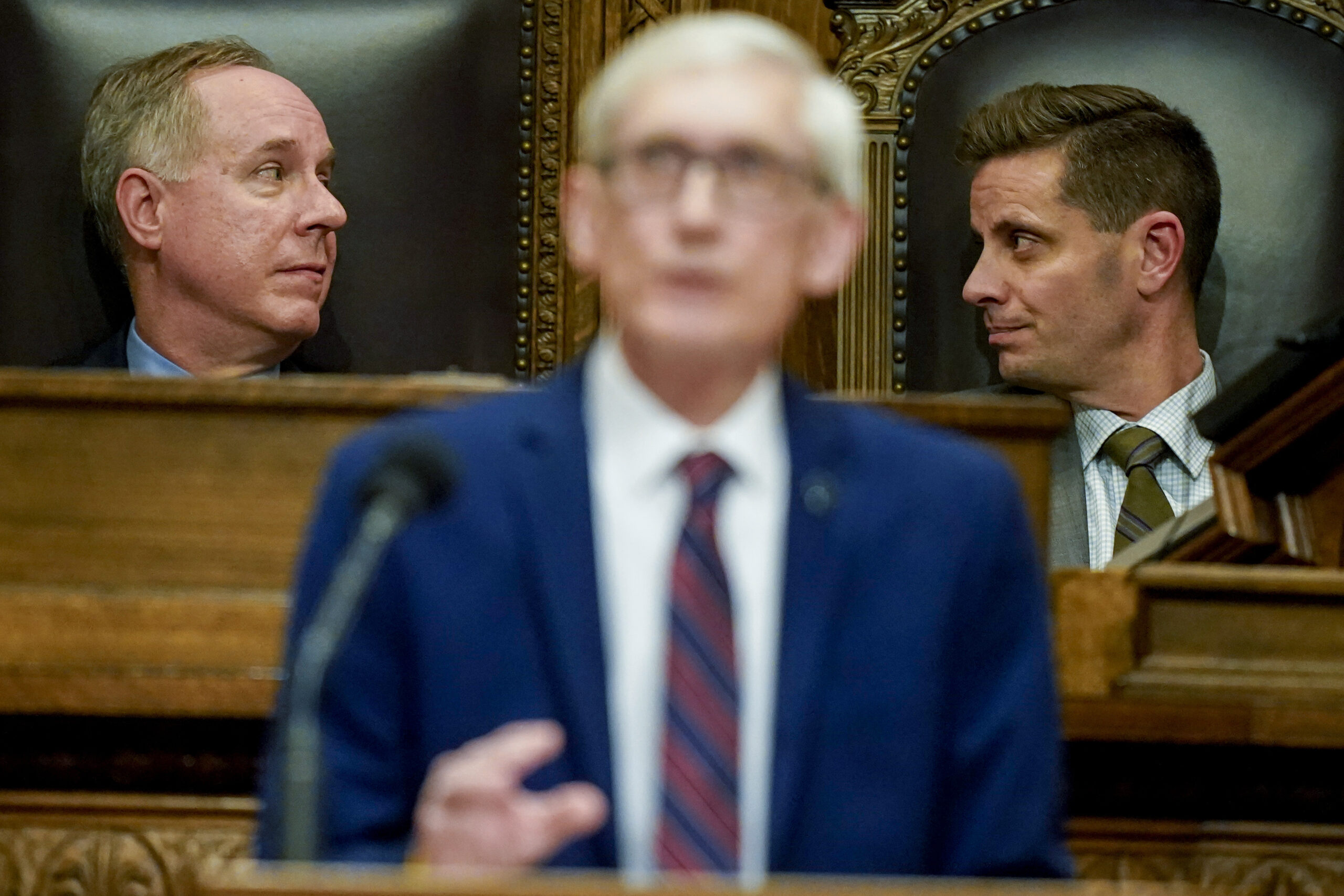
New maps advocates say recent proposal ‘is not the solution’
At Monday’s event, advocates for different state maps argued the legislative process is rushed and disingenuous.
“The current redistricting bill … that Speaker Vos rushed through the Assembly is not the solution to the problem,” said Carlene Bechen, the former grassroots director of the Wisconsin Fair Maps Coalition. “The backdoors and holes in the bills that allow legislators to control continued to control the process are buried in the details.”
The advocates argued the GOP proposal was an attempt by Republicans to stave off a court challenge that could whittle away at the strong majorities they’ve held in both chambers of the Legislature for more than a decade. Although Wisconsin’s electorate is fairly evenly divided between Republicans and Democrats, Republicans hold outsized majorities in the Legislature and few districts in the state are truly competitive.
Jay Heck, executive director of Common Cause Wisconsin, argued the redistricting proposal lacked transparency and safeguards against a majority party power grab.
“Broad bipartisan support and consensus must be attained for any nonpartisan redistricting plan to work (so) that it can be assured that it will have the trust and confidence of Wisconsin voters,” he said. “Please pardon the voters of Wisconsin if they don’t believe that, after 12 years of attacking, resisting and blocking any attempt or discussion of redistricting reform in the state Capitol, that Assembly Republicans have all of a sudden seen the light.”
A fight over recusal
Protasiewicz won her seat on the state Supreme Court by a landslide 11 points in April, with record-breaking financial support from groups including the Democratic Party of Wisconsin. Her election swung the court to a liberal majority for the first time in 15 years.
While on the campaign trail, she shared her personal views on several issues, including calling the state maps “rigged.”
It is not illegal — or unusual — for judicial candidates to receive partisan financial support, and candidates are allowed to express personal views if they do not commit to how they will decide cases in advance.
But Republican leaders have called for Protasiewicz to recuse herself from challenges to the state maps. Progressive groups filed two such lawsuits immediately after Protasiewicz was seated on Aug. 1.
Late Friday afternoon, the court voted to take up one of those cases, and Protasiewicz said in an order that she would not recuse. Oral arguments in the case are set to be heard on Nov. 21.
The suit asks the court to declare that the existing maps violate the Wisconsin Constitution, and eventually decide on new maps.
“I will set aside my opinions and decide cases based on the law,” Protasiewicz wrote. “There will surely be many cases in which I reach results that I personally dislike. That is what it means to be a judge.”
In a dissent, Chief Justice Annette Ziegler argued that the case was not being taken up on its merits, but for political gain by the liberal justices. Earlier this year, the Wisconsin Judicial Commission rejected several complaints that had been filed against Protasiewicz for her comments on redistricting.
Last month, Vos organized a secret panel composed of state jurists that he said would advise him on the prospect of impeachment. Former Wisconsin Supreme Court Justice David Prosser is the only confirmed member of that panel, which is currently under suit by a national progressive group arguing that it violates open meeting laws.
In her memo, Protasiewicz quoted Prosser in support of her decision not to recuse.
“Successful recusal motions alter the composition of the Wisconsin Supreme Court, so that, in a very real sense, a party moving for a justice’s recusal is trying to change the composition of the court that will hear its case,” Prosser wrote in 2015.
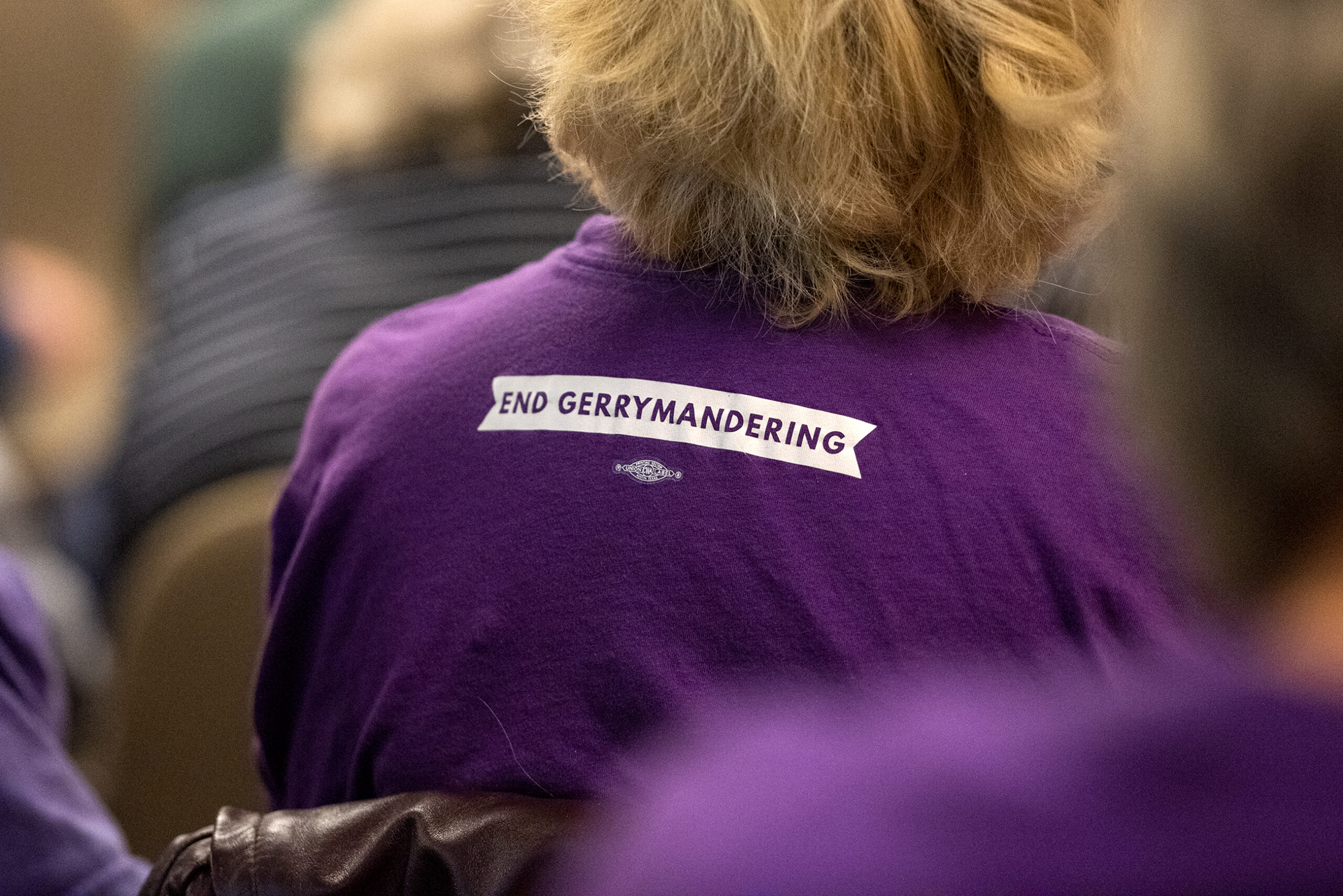
Maps have been a battleground for more than a decade
Wisconsin’s legislative maps have granted outsized power to Republicans since 2011, when they were drawn by a Republican majority following the 2010 Census. Those maps are considered to be among the most gerrymandered in the country, receiving an “F” for political fairness from the nonpartisan Gerrymandering Project at Princeton University.
Nevertheless, those maps have withstood a series of legal challenges over the years.
Liberal activists celebrated Protasiewicz’s victory this spring as heralding an opportunity to reconsider the maps.
The lawsuit the court will take up argues that the process for implementing those maps did not follow the correct process, violating the state Constitution’s separation of powers guarantee. It also argues that some existing districts are not contiguous, one of four general principles for legislative mapmakers.
If the lawsuit succeeds, all state lawmakers would face reelection to retain their seats.
In his Monday statement, Vos said that, if Protasiewicz fairly applies the law, she should affirm the high court’s finding from that case.
“Justice Protasiewicz is asking to be taken at her word that she will apply the law,” Vos said. “Applying the law should be straightforward. The Wisconsin Supreme Court addressed these very questions less than two years ago, and the law remains the same.”
A majority of Wisconsinites want nonpartisan redistricting, according to a Marquette Law School Poll released in January 2019.
For more on the history of redistricting in Wisconsin and how it impacts political power in the state, check out WPR’s investigative podcast series, “Mapped Out.”
Wisconsin Public Radio, © Copyright 2025, Board of Regents of the University of Wisconsin System and Wisconsin Educational Communications Board.
